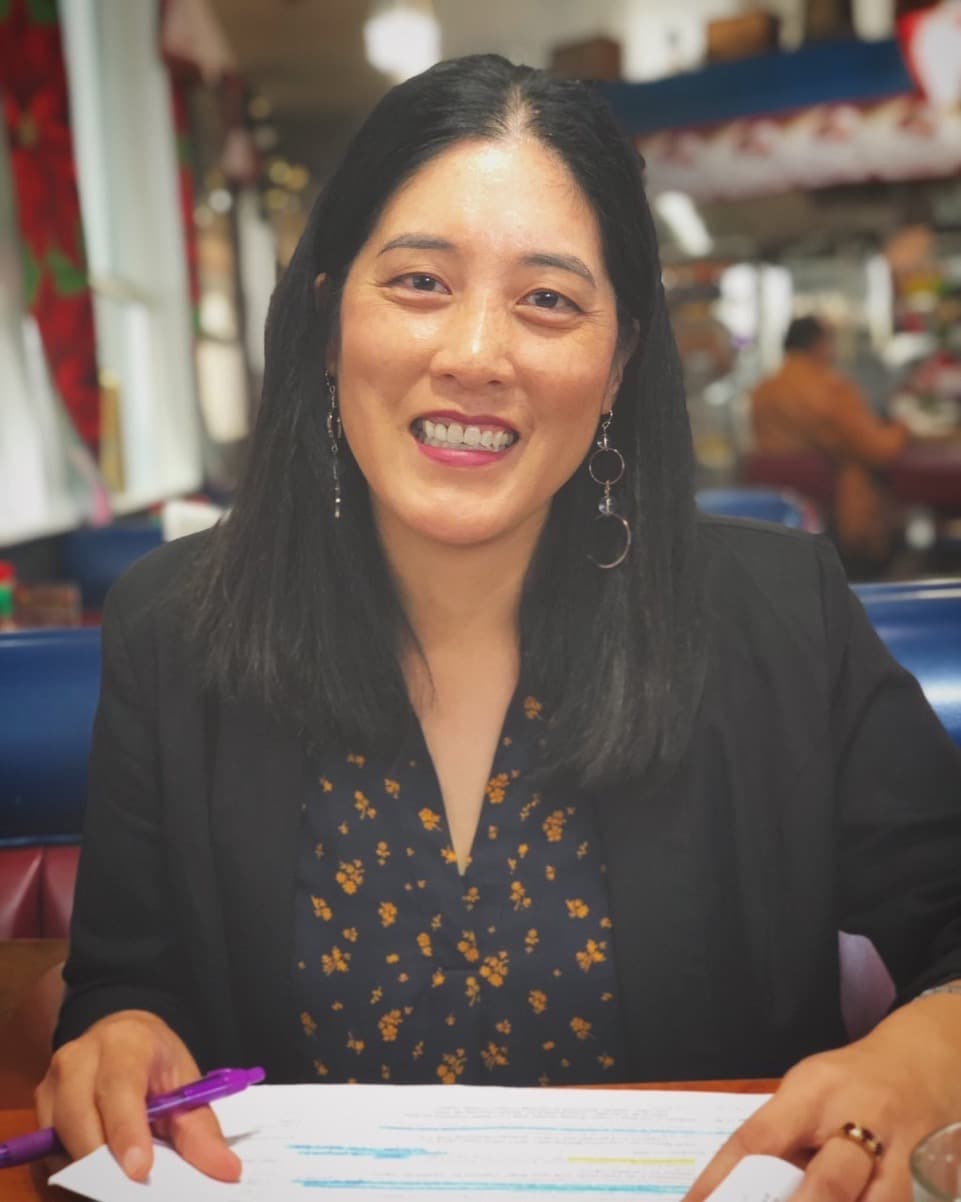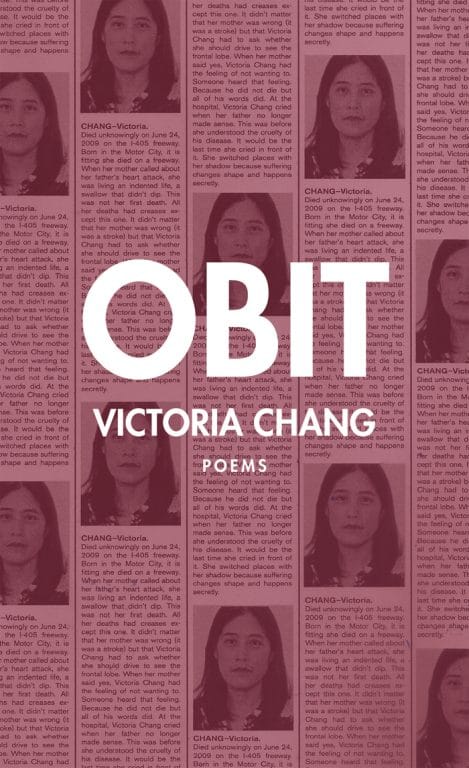
Victoria Chang’s prior books are Barbie Chang, The Boss, Salvinia Molesta, and Circle. She has received a Guggenheim Fellowship, a Sustainable Arts Foundation Fellowship, the Poetry Society of America’s Alice Fay di Castagnola Award, a Pushcart Prize, a Lannan Residency Fellowship, and a MacDowell Colony Fellowship. She lives in Los Angeles and is the program chair of Antioch’s low-residency MFA program.

Judges’ Citation
Victoria Chang’s Obit achieves a new form for grief and sorrow.
Victoria Chang’s Obit achieves a new form for grief and sorrow. Using the familiarity of the obituary, she repurposes the form with the truth that death makes clear, absurd, and funny. Death is not something that happens to someone else—it is yours too, up close and personal, and deeply particular. It is not just a name or person or relation that dies—it is a frontal lobe, language inside the phone, the voicemail, the view and experience, the language they made or didn’t make, their sounds too. The self that knew them. Privacy, friendships, gait, logic, optimism, ambition, tears, reason, a chair. Every bit of a lived life gets a spot. In this book ‘grief takes many / forms, as tears or pinwheels…’ ‘dying lasts forever / until it stops’ and ‘our sadness is plural, but grief is / singular.’
Selected poems
by Victoria Chang
Grief—as I knew it, died many times. It
died trying to reunite with other lesser
deaths. Each morning I lay out my
children’s clothing to cover their grief.
The grief remains but is changed by
what it is covered with. A picture of
oblivion is not the same as oblivion.
My grief is not the same as my pain. My
mother was a mathematician so I tried
to calculate my grief. My father was an
engineer so I tried to build a box around
my grief, along with a small wooden
bed that grief could lie down on. The
texts kept interrupting my grief, forcing
me to speak about nothing. If you cut
out a rectangle of a perfectly blue sky,
no clouds, no wind, no birds, frame it
with a blue frame, place it faceup on
the floor of an empty museum with an
open atrium to the sky, that is grief.
Copyright © 2020 by Victoria Chang, Obit, Copper Canyon Press
Grief
Language—died, brilliant and beautiful
on August 1, 2009 at 2:46 p.m. Lover
of raising his hand, language lived
a full life of questioning. His favorite
was twisting what others said. His
favorite was to write the world in black
and white and then watch people try
and read the words in color. Letters
used to skim my father’s brain before
they let go. Now his words are blind.
Are pleated. Are the dispatcher, the
dispatches, and the receiver. When
my mother was dying, I made everyone
stand around the bed for what would
be the last group photo. Some of us
even smiled. Because dying lasts
forever until it stops. Someone said,
Take a few. Someone said, Say
cheese. Someone said, Thank you.
Language fails us. In the way that
breaking an arm means an arm’s bone
can break but the arm itself can’t break
off unless sawed or cut. My mother
couldn’t speak but her eyes were the
only ones that were wide open.
Copyright © 2020
Language (from Obit)
Oxygen—died on March 12, 2012. At
first, it came in heavy green canisters.
Then a large rolling machine that
pushed air day and night. When my
mother changed her clothes, she
had to take the tube out of her nose.
She stopped to catch her breath, as
if breath were constantly in motion,
as if it could be chased. I’m not sure
when I began to notice her panic
without the oxygen, in the way we don’t
notice a leaf turning red or an empire
falling. One day, it just appears, as if
it had been there all along. Like the
hospice staff with their papers, bags
of medicine, their garlands of silence.
Like grief, the way it dangles from
everything like earrings. The way grief
needs oxygen. The way every once in
a while, it catches the light and starts
smoking. The way my grief will die with
me. The way it will cleave and grow
like antlers.
Copyright © 2020